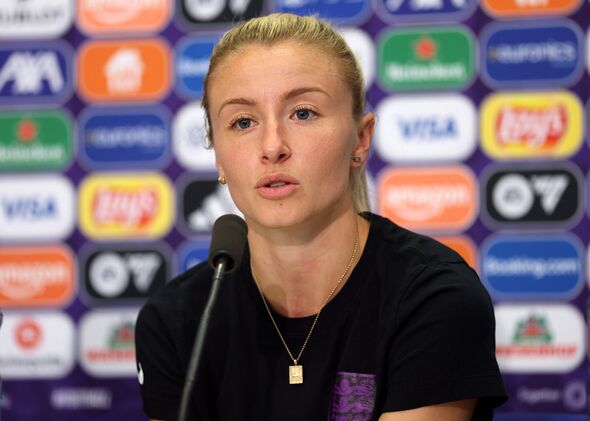England captain Leah Williamson, a formidable presence on the football pitch, has candidly shed light on a stark financial reality that underpins the disparity between the men’s and women’s game. Despite her immense success, including leading the Lionesses to two historic European Championship victories, Williamson harbors legitimate concerns about her post-playing career finances, a sentiment that resonates deeply within the landscape of professional women’s sports.
The 28-year-old defender has cemented her legacy as a national icon, celebrated for her leadership and pivotal contributions to the Lionesses’ triumphs. Her remarkable journey includes commanding performances on home soil and abroad, guiding her team to unprecedented success that has captivated a nation and elevated the profile of women’s football.
Williamson has dedicated her entire club career to Arsenal, where she has enjoyed a decorated tenure, clinching a Champions League title, a Women’s Super League title, and six other domestic cups. Her commitment to the Gunners underscores a career built on consistent excellence and unwavering dedication at the highest levels of club football.
However, the celebrated athlete openly admitted to actively planning for life beyond football, a necessity she believes many male counterparts do not face. This proactive approach stems from the fundamental difference in earning potential, which prevents her from achieving the financial independence common among top-tier male footballers upon retirement.
In a revealing statement, Williamson articulated that her current earnings are insufficient to allow her to retire comfortably after her playing career concludes. Consequently, she continues her accountancy studies, recognizing the crucial need for a professional fallback option, a stark indicator of the economic challenges even elite female athletes encounter.
Reports suggest Williamson earns a substantial annual salary; however, this income stream is intrinsically tied to her active playing career and pales significantly in comparison to the multi-million-pound wages commanded by Premier League stars. This vast financial chasm highlights a systemic issue within the sport, where talent and achievement are not always met with equitable compensation across genders.
Williamson’s early career also presented unique hurdles rarely encountered by male players. Her formative years in football began on a boys’ team, Scot Youth, due to the absence of a local girls’ team, an arrangement that often sparked contention. Her experiences, and those of her mother who had to disguise her gender to play, underscore the historical and ongoing battles for recognition and opportunity in women’s sports.
The Lionesses’ recent successes, particularly the Euro victories, have undeniably marked a turning point. Williamson believes the overwhelming support, exemplified by 87,000 fans at Wembley, has played a significant role in improving conditions. The triumph in Switzerland, securing England’s first senior team tournament win abroad, further underscores the burgeoning popularity and impact of women’s football.
Despite her personal financial concerns, Williamson’s dedication to the sport remains steadfast, symbolizing the resilience and passion driving the women’s game forward. Her candid admissions serve as a powerful catalyst for broader conversations about financial equity and sustainable career paths for female athletes worldwide, pushing for necessary advancements within the global football community.






Leave a Reply